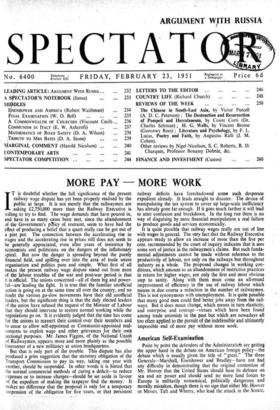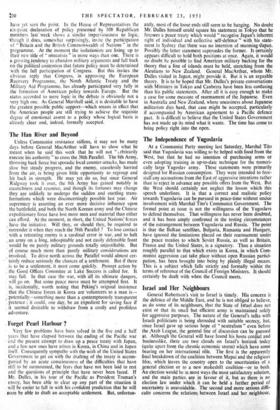American Self-Examination
Point by point the defenders of the Administration are getting the upper hand in the debate on American foreign policy—the debate which is usually given the title of " great." The three Generals—Marshall, Eisenhower and Bradley—have not had any difficulty in demonstrating that the original contention of Mr. Hoover that the United States should base its defence on sea and air power and should send no more land forces to Europe is militarily nonsensical, politically dangerous and morally mistaken, though there is no sign that either Mr. Hoover or Messrs. Taft and Wherry, who lead the attack in the Senate, have yet seen the point. In the House of Representatives the six-point declaration of policy presented by 108 Republican members last' week shows a similar imperviousness to logic, ?though it does, somewhat surprisingly, invite the participation of " Britain and the British Commonwealth of Nations " in the 'programme. At the moment the isolationists are living up to their new title of " retreatists " in more ways than one. There is a growing tendency to abandon military arguments and fall back on the political contention that future policy must be determined with the full participation of Congress. But this invites the obvious reply that Congress, in approving the European Recovery Programme, the North Atlantic Treaty and the Military Aid Programme, has already participated very fully in the formation of American policy towards Europe. But the status accorded to mere logic in the debate is obviously not a very high one. As General Marshall said, it is desirable to have the greatest possible public support—which means in effect that the American people are still trying to achieve the requisite degree of emotional assent to a policy whose logical basis is already clear and, indeed, formally accepted.







































 Previous page
Previous page